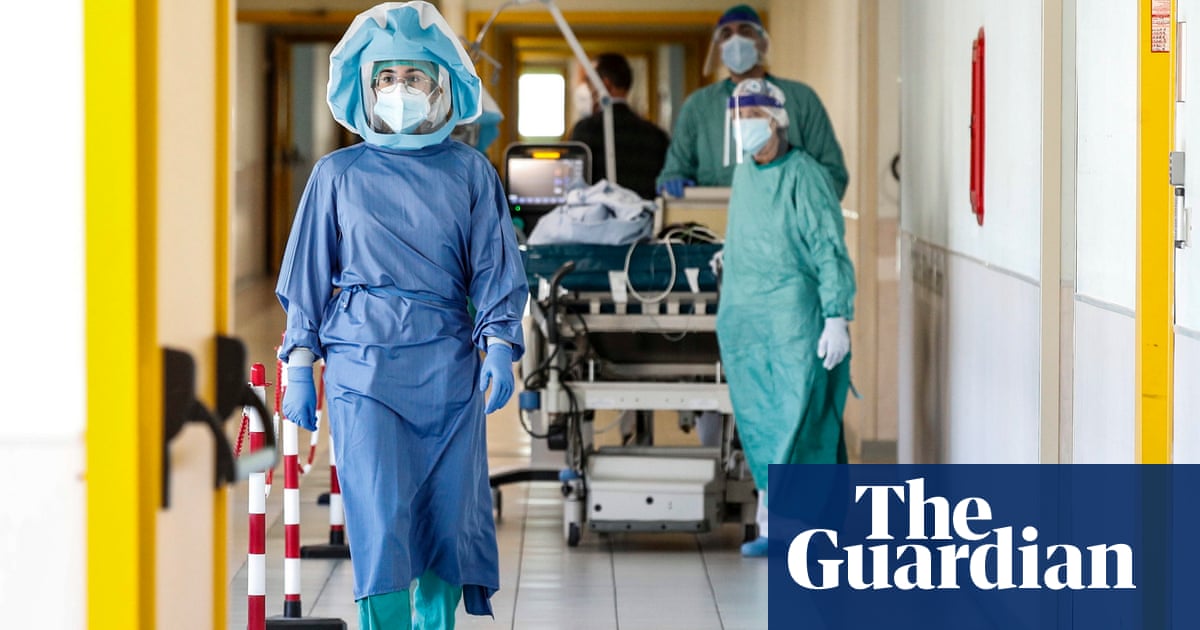
The daughter of a bus driver who died from Covid-19 has called for a public inquiry after a report revealed people doing that job were more than three times more likely to die from the virus.
The report into the high death rate of London bus drivers during the pandemic by a leading expert on health and social inequalities concluded that imposing an earlier lockdown in England would have saved lives.
Leshie Chandrapala, whose 64-year-old father, Ranjith, died on 3 May after driving the No 92 bus on the Ealing hospital route from the beginning of the coronavirus crisis, described reading the report as “extremely distressing” for her and her family.
“The report made it very clear that a lot of bus drivers, including dad, could still be alive today if Boris Johnson and his government had taken the pandemic seriously and locked down earlier,” Chandrapala said.
“It’s really clear to us that the ultimate responsibility for keeping drivers safe lay with the Department for Transport and Grant Shapps. They set the policies for TfL [Transport for London] and bus companies, they had access to the medical experts who could advise on how to keep drivers safe.
“We need an initial inquiry to find out what’s gone wrong so more drivers don’t die if there is a second wave of Covid-19 and we also need a public inquiry to see why bus drivers like my dad died and for the necessary parties to take accountability for that.”
The report, commissioned by TfL amid major concerns over the deaths of transport workers, found male London bus drivers aged 20 to 65 were 3.5 times more likely to die from Covid-19 between March and May than men in other occupations across England and Wales.
Its author, Sir Michael Marmot, said drivers were at risk because of their job and also their underlying health, as many had high blood pressure. They were more likely to live in the boroughs worst hit by the virus and many were from black, Asian and minority ethnic (BAME) groups.
Chandrapala believes the issue goes much further then when the lockdown was imposed. “TfL were at the forefront of saying masks were not necessary and we have enough PPE, but obviously that was not the case. My dad and his colleagues were dropping like flies. The report says there were variations in bus companies over when they took actions to keep drivers safe – we need to hear from TfL as to why those actions weren’t introduced and enforced immediately.”
She said the policy of middle-door boarding to keep passengers and drivers separate should have been introduced weeks earlier. “They introduced it on 20 April and my dad got sick on the 24th,” she said.
Marmot, the director of the UCL Institute of Health Equity, said: “Driving a bus, coach or taxi is among the frontline occupations associated with increased risk of death from Covid-19. Because London was an early centre of the pandemic, it is likely that the increased risk among London bus drivers is associated with exposure.
“Our review explicitly suggests that lockdown was the main factor that saved bus drivers’ lives. If lockdown had occurred earlier, it would likely have saved more lives. For those with high blood pressure, exposure to Covid-19 is particularly hazardous, disproportionately affecting drivers of ethnic minority backgrounds. In addition to reducing exposure to the virus, all drivers should therefore be screened for health risk, with those most vulnerable to dying from the virus receiving the most benefit.”
Ten bus companies were working for TfL at the start of the pandemic, employing about 30,000 people, of whom 34 reportedly died from Covid-19. Of those, at least 29 were among the 25,000 bus drivers. Stories emerged of passengers spitting at bus drivers. One man was jailed for 10 months as a result.
The findings were not limited to London. In the same period, “there were 70 more deaths to bus and coach drivers in England and Wales than would have been expected, of which 53 deaths included Covid-19 on the death certificate and 17 did not”, the report said.
Most of the London bus drivers who died fell sick 10 days either side of the lockdown on 23 March, the report found, suggesting they became infected before the change.
“Had lockdown come earlier it is likely that many fewer bus drivers would have died,” the report said.
The team examined death certificates for 13 of the bus drivers. In seven cases, high blood pressure or hypertension was a contributory factor. “This may be indicative of both the sedentary nature of bus driving and work stress,” said the report.
A high proportion of the drivers who died were from a BAME background, although the review does not have exact details. “We note the possibility that employment in frontline occupations may contribute to the increased risk of Covid-19 mortality in BAME groups,” it says.
They tended to live in deprived areas – three-quarters in boroughs with the highest Covid-19 death rates.
TfL said it was devastated by the deaths. “It’s clear that frontline workers across the country have disproportionately suffered from coronavirus, which is why we worked closely with all London bus operators to introduce measures to help keep the capital’s drivers safe,” said Lilli Matson, the chief safety, health and environment officer.
The measures included daily cleaning, and physically separating drivers from passengers, such as boarding via a door further from the driver.












